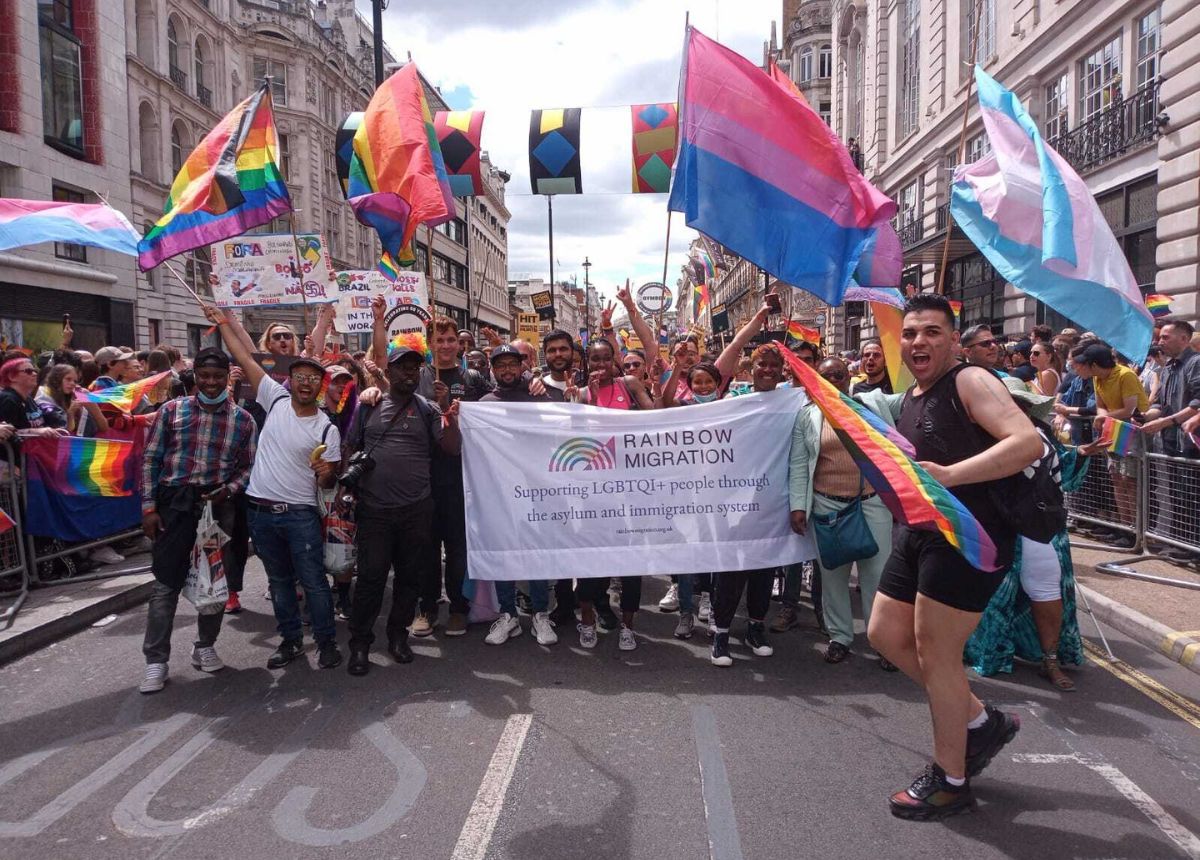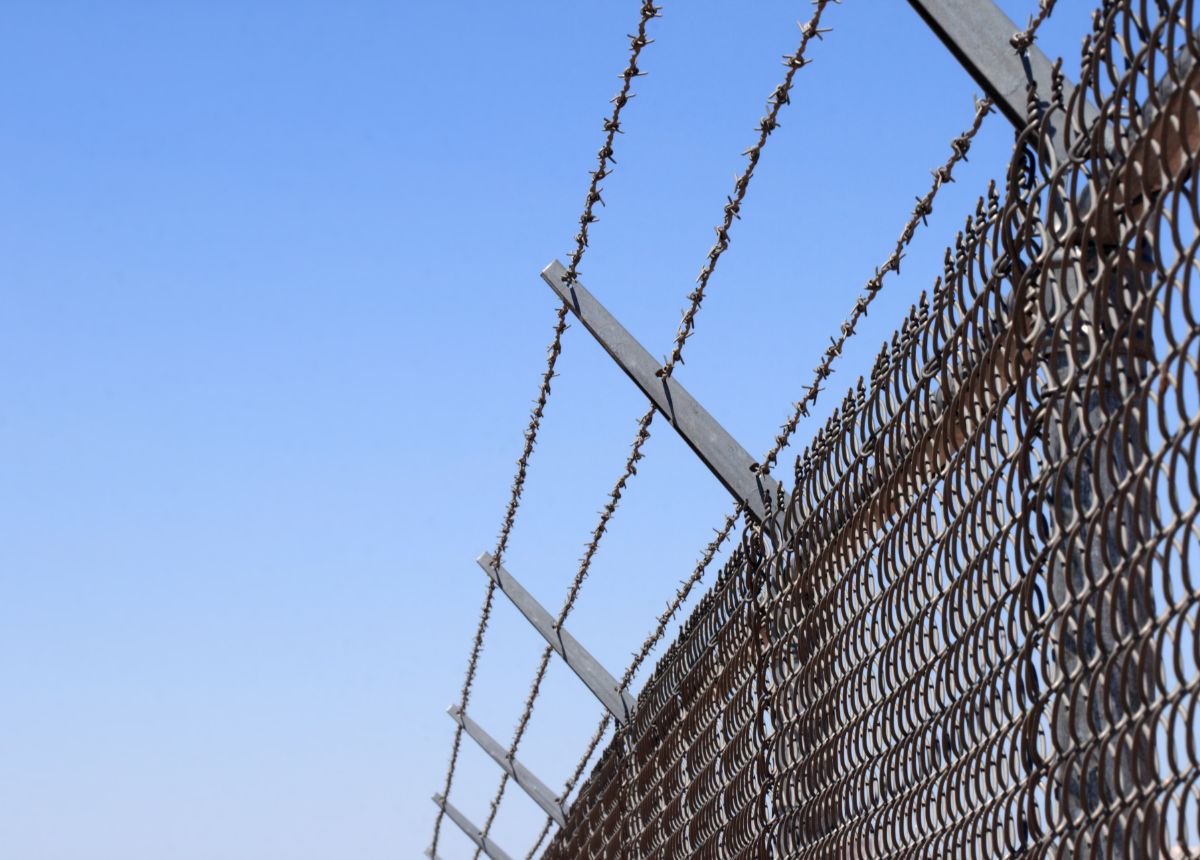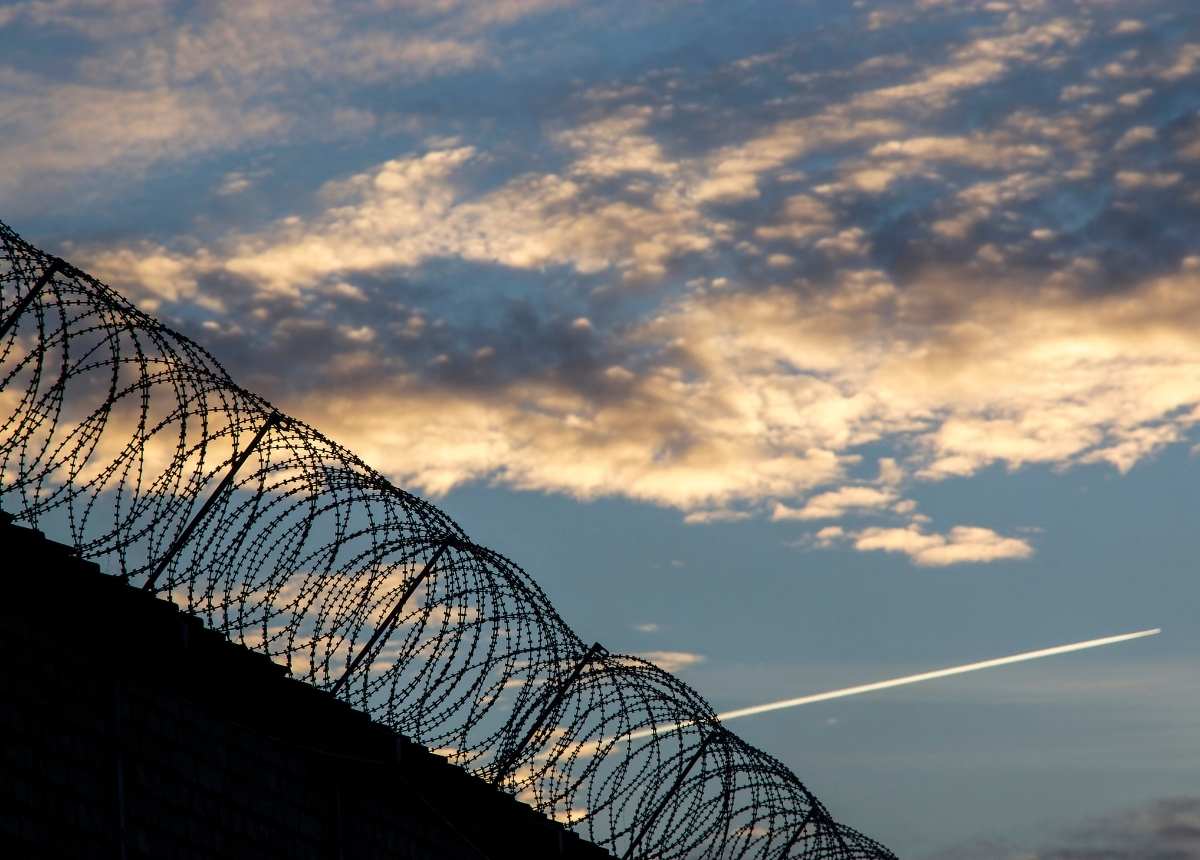Podcast about No Pride in Detention
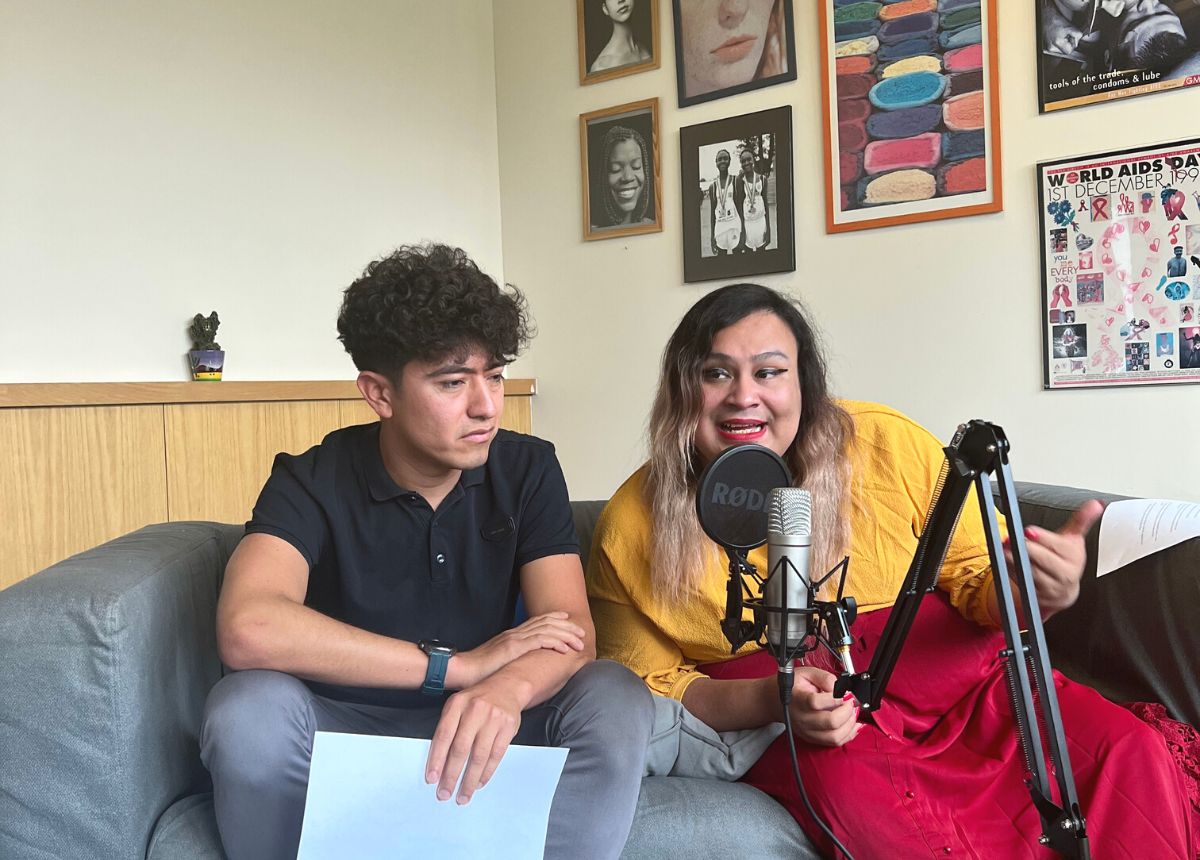
In this episode Mic Drop star Jared interviews Rainbow Migration’s Campaigns Manager Emma Webb about No Pride in Detention, our campaign that calls for an end to LGBTQI+ detention and a 28-day time limit for all immigration detention.
Emma and Jared talk us through what exactly detention is, how this system works and the specific dangers it poses to LGBTQI+ people.
Content warning: This episode discusses detention experiences, structural violence, homophobia and transphobia.
Support resources:
The Right to Remain toolkit section on immigration detention
The Right to Remain zine for people at risk of detention and their supporters
Bail for Immigration Detainees (BID)’s self-help guide on how to get out of detention
More about the Mic Drop
The Mic Drop is a collaborative podcast made by members of Many Hands One Heart and Larry Achiampong. Across the episodes The Mic Drop will detail a range of subject matter from personal experiences relating to seeking asylum whilst being LGBTIQ+ through to critical conversations relating to the arts and culture.
Many Hands One Heart is a support and wellbeing project for people from the LGBTQI+ community who are seeking asylum in Liverpool.
LGBTQI+ people still at serious risk of harm in immigration detention
A new pilot study into LGBTQI+ experiences of immigration detention since September 2016 indicates that LGBTQI+ people continue to face harassment, bullying and deteriorating mental health while in immigration detention.
The study, conducted by Dr Laura Harvey at the University of Brighton and supported by Rainbow Migration, looks at the experiences in detention of five members of the LGBTQI+ community – three gay men and two non-binary people. Four of the participants were held in Immigration Removal Centres for several months, and one in a Short-Term Holding Facility for 48 hours.
Key findings – LGBTQI+ people not safe in immigration detention
Participants in the research experienced verbal and physical homophobic abuse from other people held in detention, including from individuals they were forced to share locked rooms with at night. Usman* described how he reported someone who “spat on my face for being a gay”, but was still made to share a room with this person until they attacked him physically.
As a result of this violence and intimidation, participants feared being ‘out’ while in detention and felt a need to hide their sexual orientation or gender identity. However, they were not always able to do this despite trying to, so they remained exposed to the risk of bullying and abuse. Johnson* said: “I don’t want to hide my sexuality here but I didn’t tell anyone because I was so scared.”
Although some participants found staff to be a source of help and support, others reported problems including verbal homophobic abuse from staff, being afraid to report homophobic bullying to staff, inaction from staff in the face of escalating homophobic bullying and misgendering by staff.
Overall, participants experienced worsening mental health and delayed access to mental health support while in detention, as well as being put in situations that resembled past traumatic experiences.
Johnson* had suffered violent homophobic attacks in their home country – including one in which their partner was killed – and was identified by a GP in detention as needing mental health support. However they waited three months to be seen by a psychiatrist, during which time they had to share a locked room with someone who was openly homophobic towards them.
Ending LGBTQI+ detention remains as urgent as ever
The research aimed to explore whether experiences of LGBTQI+ people in detention had changed significantly since the last piece of research on this topic in 2016 and after the introduction of the Adults at Risk in Immigration Detention policy that same year, which recognised the heightened risk of harm to trans and intersex people in detention.
According to the findings, LGBTQI+ people still face considerable and ongoing risk of harm in immigration detention in the UK. The data suggest that detention centres are inherently risky for LGBTQI+ people, who are trapped in a space that they cannot leave, in which abuse and harassment are difficult to escape.
With the government now increasing its use of immigration detention it is crucial they recognise that people who cannot be kept safe from harm in detention should never be placed there. That applies to all members of the LGBTQI+ community.
If you agree please email your MP to ask if they oppose LGBTQI+ detention and let us know their response.
* All names used for participants are pseudonyms to protect their anonymity.
For more information about the pilot study please see the research report or summary of key findings.
Join our campaigns advisory group!
***This opportunity has now closed***
Would you like to get involved in campaigning against immigration detention?
Our No Pride In Detention campaign is steered by a group of LGBTQI+ people with lived experience of the UK asylum system. We have been working together for the past year to develop and launch the campaign, and have secured the support of over 4,000 people and 19 organisations for an end to the detention of LGBTQI+ people.
We are now opening up the group to new members for 2023, so read on to find out how you can get involved.
Who can join?
- Are you LGBTQI+ (lesbian, gay, bisexual, trans, queer and/or intersex)?
- Have you been through the UK asylum system and/or been held in UK immigration detention, and been granted leave to remain?
- Are you passionate about improving our asylum and detention system to help LGBTQI+ people fleeing persecution?
If your answer to the above questions is yes and you are willing to volunteer your time with us, we would love to hear from you. We especially encourage applications from people who have experienced immigration detention as this is the focus of our current campaign.
No previous experience of campaigning is needed – your life experience and passion are more important than work history, and our staff will support you to develop any skills you need.
What will it involve?
You will help to steer, deliver and evaluate our No Pride In Detention campaign, attending online planning meetings with other group members roughly every other month. You will also have the option to attend other campaign events and activities, but anything beyond the regular meetings is optional. Find out more in the Role Description or check out our Campaigns Advisory Group page for more information on current members and activities.
What support are we offering?
This is a voluntary position but we will cover any pre-agreed expenses needed to enable you to take part (e.g. travel, mobile top-ups, childcare). We ask that you tell us what you hope to get out of joining the group so that we can support you to achieve that goal, as well as helping you to develop any knowledge or skills you will need for the role.
How to apply
You can apply online or download an application form to complete and email to us. If you need to apply in a different format (e.g. by sending us a video) or if it would prove difficult to complete the form, just let us know and we’ll try to arrange something that works for you. The deadline is Sunday 26 February but we encourage early applications.
If you have any questions or would like to have an informal chat with our Campaigns Manager or a current member of the group before applying, please email us to arrange this.
"It is a way of getting my voice heard in cases where it normally wouldn’t be heard"
We work with a ‘Campaigns Advisory Group’ made up of LGBTQI+ people with lived experience of the UK asylum system to steer our public campaigning. The group meets regularly with staff to plan, deliver and evaluate activities for our No Pride In Detention campaign. Vanessa, one of the current members, told us her thoughts on being part of this group.
“I came across the advisory role from a friend who knows how passionate I am about the rights of LGBTQ+ people seeking asylum and refugees.
At first I was hesitant because I am a bit anxious but I went for it.
I remember the interview with Emma and Carla, it was very informal and I was literally on a coach to Manchester.
Talking to Emma about my expected commitment got me very excited and I looked forward to joining the advisory team.
I remember receiving the email that I was successful and feeling hopeful for the future and participating in influencing decisions.
It has been a very good experience, I have learnt so much about the refugee system, apart from experiencing the asylum system, from the research and reports that have been conducted I have walked in the shoes of others.”
It is a way of getting my voice heard in cases where it normally wouldn’t be heard.
The best part about this is being able to influence decisions, coming up with ideas for campaigns, participating in events.
It is a way of getting my voice heard in cases where it normally wouldn’t be heard.
I had heard about detention centres but never heard stories from LGBTQ+ people who had actually stayed in detention centres. Being in the advisory group has opened my eyes to the struggles and has also created the passion to lend my voice and words against detention.
Imagine leaving a country that restricts your rights and freedom and then getting into a prison like environment, it can be devastating.
So whether it is silently lending your voice, participating in campaigns and researches, if you are passionate about helping people then this is the right place.”
To learn more about Rainbow Migration’s Campaigns Advisory Group and how you can get involved, please see the role description and application form.
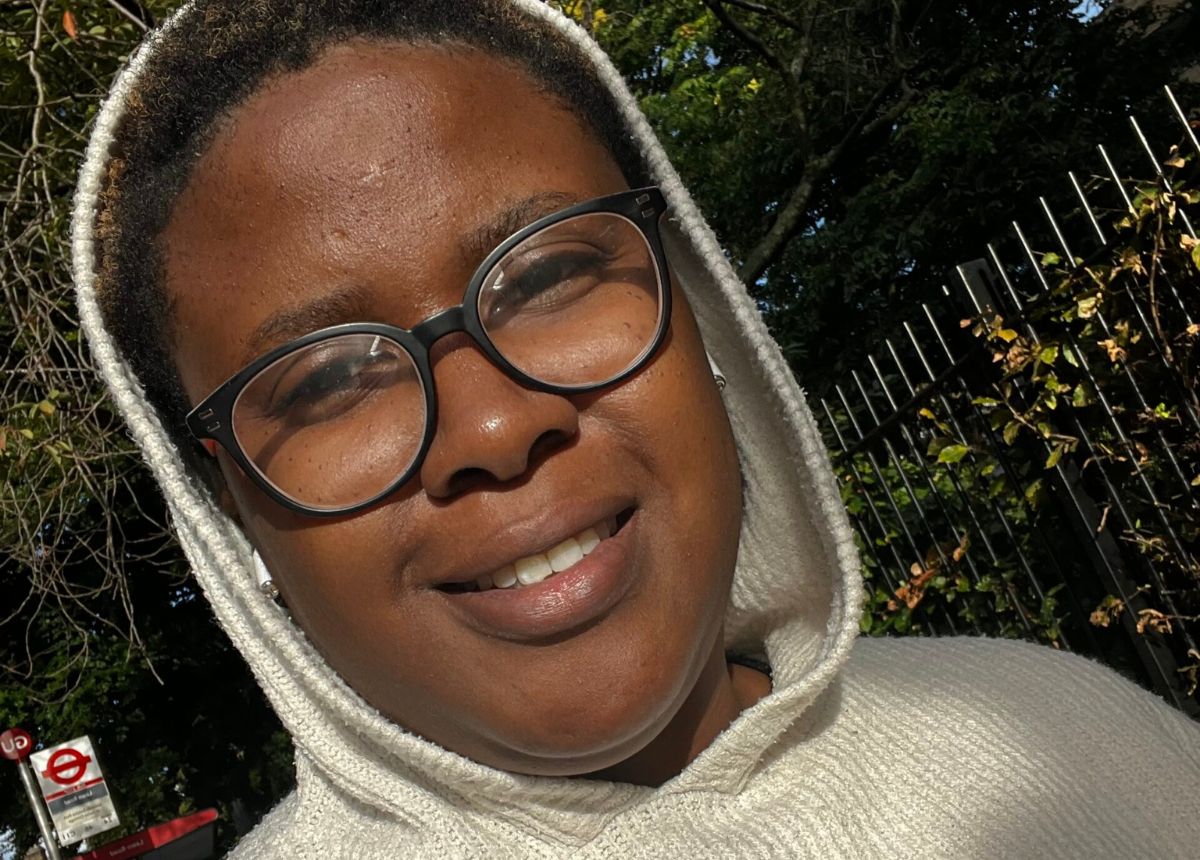
Less scrutiny means more risk for LGBTQI+ people in detention
This Government has stopped commissioning the annual independent reviews into the treatment of vulnerable adults in immigration detention. If there is no one that keeps an eye on the conditions in detention, LGBTQI+ people could be put at risk of more harm.
Last week, the Independent Chief Inspector of Borders and Immigration (ICIBI), David Neal, and the former Prisons and Probation Ombudsman, Stephen Shaw CBE, reported that this Government was ending their annual independent investigations into the treatment of vulnerable adults in detention.
What is the Adults at Risk policy and how long has it been independently reviewed?
The Adults at Risk policy (AaR) recognises that certain groups of people may be “particularly vulnerable to harm in detention” and creates a presumption that these groups should not be detained. The AaR includes trans and intersex people and our ‘No Pride in Detention’ campaign is calling for lesbians, gay and bisexual people to also be included in this policy, as there is evidence that they also experience homophobic bullying, harassment and abuse when locked up.
The ICIBI carries out reviews on the effectiveness of the Home Office’s practices and policies towards adults at risk in immigration detention since 2015 and makes recommendations to improve the conditions of detention. But as the ICIBI notes, “though many recommendations arising from our reviews and inspections have been accepted, progress in implementing them has been painfully slow”.
For instance, in 2019, In his report on the Adults at Risk annual inspection, the ICIBI commented upon the fact that the Home Office does not collect data on the number of LGBTQI+ people who are detained, and therefore it was “hard to see how the Home Office is able to assess the quality of its decisions to detain or the impacts of detention on specific group”. This is a recommendation that has not been implemented yet.
Latest ICIBI report released
The news about the end of these reviews comes as the last annual report has just been released, in which the Inspectorate reports that “officers in both Yarl’s Wood and Harmondsworth [detention centres] told inspectors that being under-resourced and carrying vacancies was negatively affecting the delivery of their required engagement activity”, with delays of “up to a month”. The “engagement activity” includes inductions for new arrivals to detention, in which LGBTQI+ people have the opportunity to raise their sexual orientation and/or gender identity with officials. If people don’t have the opportunity to raise that they are LGBTQI+ when they enter the detention centre, it can be more difficult to raise this at a later stage, and people may not be made aware of policies that are in place to protect them from bullying, discrimination and abuse.
With these inspections coming to an end, the Home Office will face less pressure to comply with the policy and improve conditions in detention for adults at risk, including LGBTQI+ people.
The Government has said it plans to “take the welfare of detained individuals extremely seriously”, but at Rainbow Migration we find it hard to understand how they are going to achieve that while dismantling the independent scrutiny mechanisms in place.
Immigration detention is not safe for anyone. Being detained puts many people who are often already traumatised, at even greater risk of poor mental health and suicide. This is especially true for LGBTQI+ people.
Instead of trying to end the annual reviews on the adults at risk policy’s effectiveness, this Government should put an end to the detention of LGBTQI+ people and set a time limit on all immigration detention.
There is #NoPrideInDetention.
World Suicide Prevention Month: the mental health crisis in immigration detention
***Warning: The following article marks World Suicide Prevention Month, which takes place every September. As such it contains themes of death, self-harm and severe mental health issues. Please take care, and do not read on, if you might find this too difficult. If you are an LGBTQI+ person seeking asylum and would like to access emotional support, please contact us.
This World Suicide Prevention Month we want to shed light on the mental health crisis in immigration detention. People seeking asylum, or going through our immigration system, can be held in detention without warning, and without knowing when they will be released. Being taken away from friends and family, and held in prison-like conditions, significantly impacts a person’s physical and mental health. In fact, since 2000, 30 people have died by suicide whilst in immigration detention in the UK.
In Colnbrook detention centre there were 41 recorded incidents of self-harm and 14 people were under constant watch for self-harm between September 2021 and February 2022. 25% of the people held there in 2021-22 said they felt suicidal, and more than three quarters were depressed, according to a report by His Majesty’s Inspector of Prisons. That same report identified there had been insufficient safeguards against placing people who were suicidal in detention.
These problems are not new. In 2018, The Guardian reported that on average, 2 people per day attempt suicide whilst in immigration detention. In late 2020, after the government announced charter flights would remove people to other countries, the risk of suicide in immigration detention rose to “unprecedented levels” at Brooke House detention centre, according to its Independent Monitoring Board.
Current government policy is having a similar effect. Earlier this month, Medical Justice, an organisation which supports the health and legal rights of people in immigration detention, warned that this government’s policy to send people arriving in the UK to Rwanda is damaging people’s health whilst in detention. Their evidence shows the threat of removal has exacerbated anxiety, depression, and post-traumatic stress disorder, and caused fear, uncertainty, and loss of hope. It has also lessened some people’s resilience to existing trauma. For some, this means an increased likelihood of self-harm and suicide.
LGBTQI+ people in detention are especially at risk. Many will have fled persecution and are already trying to cope with experiences of trauma from their past. In detention, they are forced to relive that trauma and to do so completely alone, without specialist support. Many then experience LGBTQI-phobic bullying and abuse in detention, which compounds their existing trauma. Often, they try to hide that they are LGBTQI+ in order to stay safe. It’s reminiscent of the situation from which they have fled. This all has a huge impact on their mental health and can drive many to self-harm and suicide.
That these centres are particularly damaging for LGBTQI+ people, is highlighted in our joint report with Stonewall, No Safe Refuge. The people we spoke to stressed the deterioration of their mental health whilst in detention. Many self-harmed, couldn’t sleep, or stopped eating. Some attempted suicide and knew of other people in detention who died by suicide.
“I would have preferred to take my own life than be in here.
It is so painful to be stigmatised and unable to disclose my identity.
You would prefer to be anywhere than this cage of darkness.”
Mukasa from Uganda, No Safe Refuge
It is clear these centres are not safe for anyone. Being detained puts many people who are often already traumatised, at even greater risk of poor mental health and suicide. This is especially true for LGBTQI+ people for the reasons set out above.
Moreover, no-one should be held in immigration detention without knowing when they’ll be released. The uncertainty of indefinite detention is a huge part of what makes it so damaging. Research shows that mental health worsens the longer the period of detention. As the government’s own guidance states that 28 days is long enough to decide whether a person should be removed from the UK, it is wrong to detain anyone longer than this.
That’s why we’re campaigning for an end to LGBTQI+ detention and a time limit on all detention. You can support us now by signing your name here.
There is #NoPrideInDetention.
3 things our new PM could do to help LGBTQI+ people seeking asylum in the UK
With Liz Truss replacing Boris Johnson as Prime Minister today, we look at what she could do right away to support LGBTQI+ people in our asylum and immigration system.
There is no doubt that recent government policy and legislation have put the lives of LGBTQI+ people at even greater risk. The Nationality and Borders Act has made it harder for people fleeing persecution to receive protection here, whilst the Rwanda plan threatens to send them thousands of miles away to a place where LGBTQI+ people face violence and discrimination.
Boris Johnson’s government has also overseen a sharp rise in the number of people held in immigration detention in the last year, adding to his legacy of cruel immigration practices.
But a new Prime Minister means there is a chance for a change of direction. We hope that Truss, former Secretary of State for Foreign, Commonwealth and Development Affairs, Minister for Women and Equalities, and a supporter of equal marriage, will reverse the downward trend, and halt the deterioration of rights for LGBTQI+ people seeking safety here.
So here are three things Liz Truss could do to help LGBTQI+ people in the UK seeking asylum:
1. End LGBTQI+ detention
Immigration detention is unjust and inhumane. It separates people from their families and seriously damages their mental and physical health. For LGBTQI+ people, it can be particularly dangerous as they face bullying, harassment and abuse. The UK is the only country in Europe where people can be detained indefinitely, with no idea when they might be set free.
Our No Pride in Detention campaign calls for an end to LGBTQI+ people being held in detention, and a 28-day time limit on all detention. These reforms are urgently needed to limit the damage of this harmful, unjust and expensive system.
If you agree that our new Prime Minister should act now and end LGBTQI+ detention, please tweet Liz Truss today.
2. Scrap the Rwanda plan
In April 2022, the government announced plans to send people arriving in the UK to Rwanda to have their asylum claims processed there. Although so far, the policy has been held up by legal challenges, the government is still planning flights for this year.
Rwanda is not safe for LGBTQI+ people: they are not legally protected, and are subject to entrenched discrimination, violence and abuse, often from security officials. In the past Rainbow Migration has even supported LGBTQI+ Rwandans seeking safety in the UK.
Innocent Uwimana, a gay man from Rwanda, told us how dangerous it is for LGBTQI+ people there and urges the government to ditch the proposal.
“Being a sexual minority in Rwanda means living
in terror and violence.” Innocent Uwimana
Liz Truss has backed the catastrophic scheme so far, but she must scrap it and welcome asylum applications made in the UK instead. Banishing people thousands of miles away presents a real and present danger to anyone seeking asylum in the UK, and especially LGBTQI+ people.
3. Reverse the changes to the standard of proof for asylum claims
How would you prove your gender identity or sexual orientation if a total stranger asked you to? Providing evidence that you are LGBTQI+ is a huge obstacle to overcome.
The new Nationality and Borders Act places unreasonable expectations on LGBTQI+ people seeking asylum by setting an even higher bar to “prove” their sexual orientation and/or gender identity, and therefore increasing the likelihood of LGBTQI+ people being refused asylum.
LGBTQI+ people fleeing persecution might have spent their entire lives hiding who they are for their own safety. The only evidence some will have is their own word.
Proving sexual orientation, gender identity and expression, or sex characteristics, is difficult and distressing, and passing a law that made it harder was heartless. Raising the standard of proof means hundreds, or even thousands, of LGBTQI+ people could be returned to countries where they face torture, imprisonment, or death.
There are many points in the Nationality and Borders Act which need withdrawing but reversing changes to the standard of proof for asylum claims is urgent and could prevent the loss of LGBTQI+ lives.
Worrying rise in immigration detention shows need for urgent reform
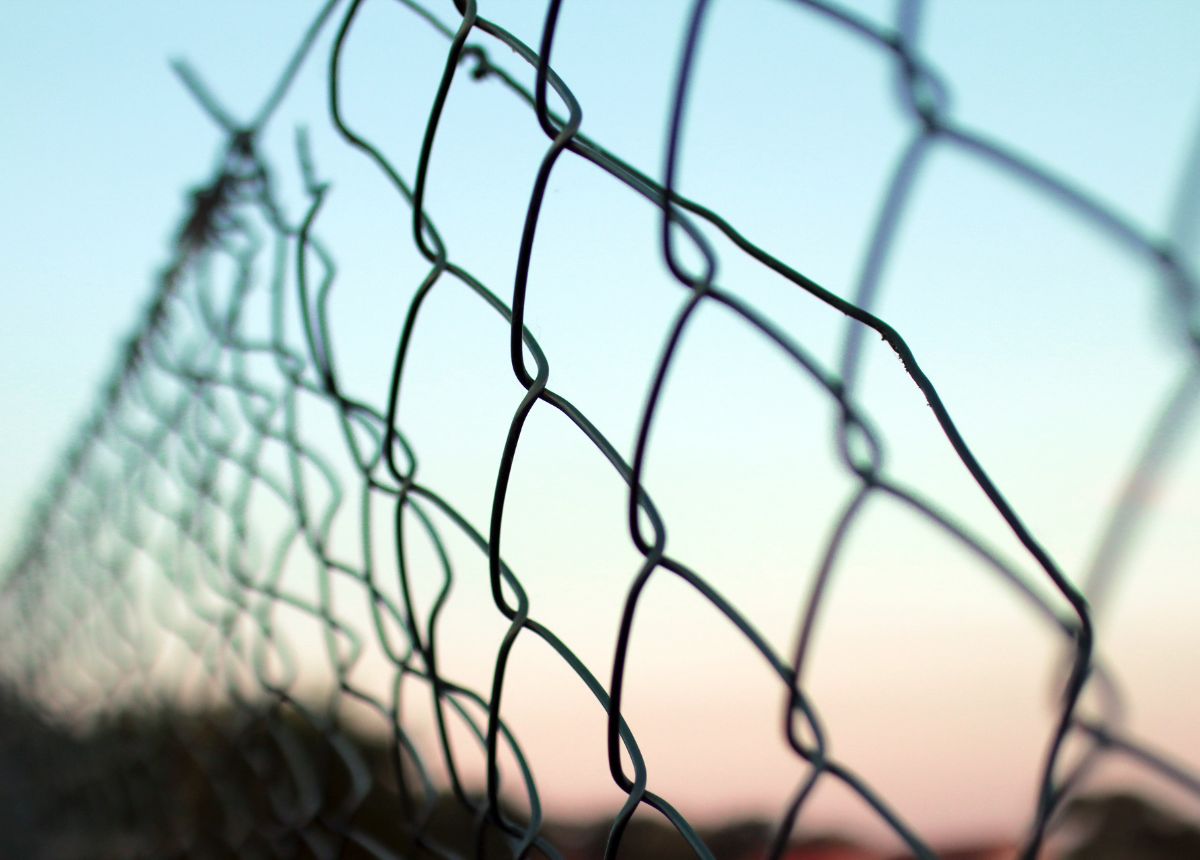
During the height of the pandemic there was a dramatic fall in the number of people held in immigration detention in the UK. This was a golden opportunity to shift away from detention towards community-based alternatives that have been shown to provide better outcomes for less money. But instead of seizing this opportunity, it appears that this government is heading in the opposite direction.
There has been a general downward trend in the number of people entering immigration detention since the peak in 2015, with a sharp fall in 2020 and 2021 as fewer people were detained due to Covid-19 restrictions.
However, since pandemic restrictions eased last year the numbers have risen again sharply. In fact, in the year ending March 2022 the number of people entering detention (25,282) was 9% higher than the pre-pandemic levels in the year ending March 2020.
Alongside this rise in the number of people entering detention, we have also seen a troubling drive to open more detention centres. In August 2020 – when the number of women held in immigration detention had fallen below 20 – the government decided that the infamous Yarl’s Wood would no longer operate as a long-term detention centre for women (it was re-purposed as a short-term holding facility for men).
However, by November that year women were being detained there once again, and a year later the government announced the opening of a new detention centre for women in County Durham. Around 80 women were locked up at the new centre over the Christmas week in 2021, almost filling the centre to capacity immediately.
The government has also backtracked on Campsfield detention centre in Oxfordshire. Its closure was announced in November 2018 as part of a commitment to reduce the number of people detained in the UK. But in June this year, the government announced that it would re-open as a larger 400-bed detention centre for men – in part to support the government’s cruel plan to detain and send people seeking asylum to Rwanda.
Such rapid growth in immigration detention comes at significant human cost. Last month we learned that in 2021-22 a record number of 572 people had been unlawfully detained, causing untold suffering and resulting in £12.7m worth of compensation payments.
In this context of rising numbers in detention, an expanding detention estate and soaring unlawful detentions, we need curbs on this government’s powers to detain more than ever.
Nobody should be detained indefinitely with no idea when they might be set free. So until the practice of immigration detention is ended in the UK, it must be subject to a 28-day time limit to reduce the harm caused and force the government to review people’s cases more quickly.
The government should also look again at the list of groups recognised as “particularly vulnerable to harm in detention”. Although trans and intersex people are included (and therefore less likely to be detained), lesbian, gay and bisexual people are not – despite evidence that they also experience LGBTQI-phobic bullying, harassment and abuse inside.
Read more about our campaign for a time limit and an end to LGBTQI+ detention and add your name in support.
LGBTQI+ detention research
Are you LGBTQI+ and have you been held in immigration detention in the UK at any time since September 2016?
You could help people to understand what detention is like for LGBTQI+ people and improve the treatment of LGBTQI+ people going through the asylum and immigration system in the future.
Laura Harvey at the University of Brighton is doing a research project about LGBTQI+ people's experiences of detention in the last 6 years.
To find our more or volunteer to take part, email Laura on l.j.harvey@brighton.ac.uk or text or call her on 07857 089549.
You can ask for more information about the research in a different language, or ask any questions you want before deciding to take part.
No Pride in Detention: End the Detention of LGBTQ+ People
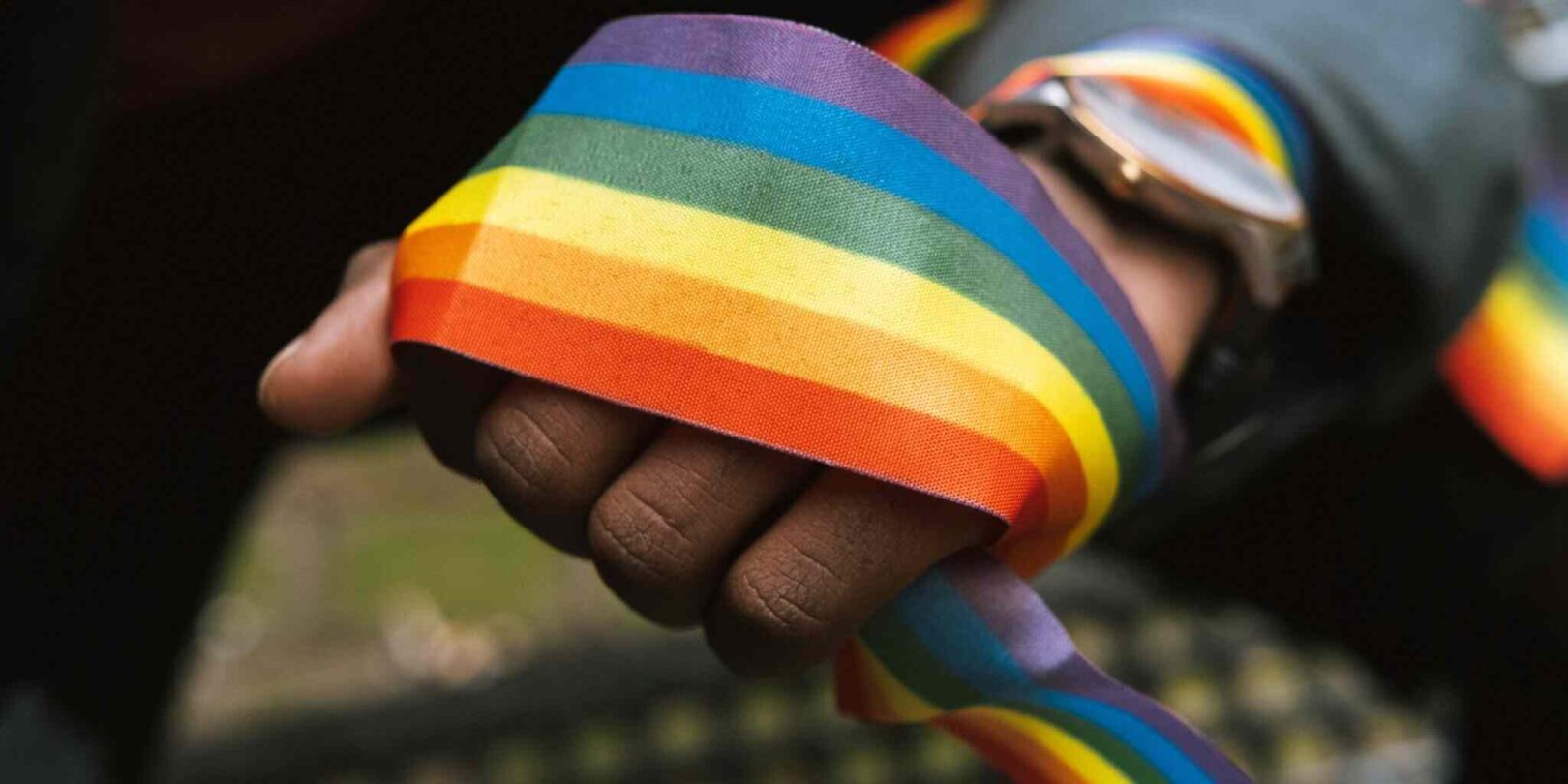
By Qussai Ramzi, this article was originally published at IMIX. Qussai Ramzi is a member of Rainbow Migration‘s campaigns advisory group
When I think of pride, I think of joy and freedom, of celebrating one’s identity and all its intersections both inwardly and outwardly. I also think of celebratory marches decorated with rainbow flags that tower over the streets and buildings, of all the times I’ve marched hand-in-hand with friends and family (chosen and otherwise), showing up in our full glory.
The chants of our pride are far-reaching, but there are places where they do not echo. Surprisingly, these places actually exist in this country. They are places where pride does not occur and within whose walls people yearn to celebrate with us and to enjoy the same freedoms we enjoy and take for granted, but can’t.
These places I am talking about are none other than the immigration detention facilities that are scattered all over the UK. Their intent is to police, among others, those who come to this country seeking safety from persecution for reasons that include their sexual orientation and gender identity/expression. Behind the walls of these facilities, visibility can be dangerous, and the suppression of gender and sexual diversity can be imperative to survival.
We are not all born equal, and this is a fact illustrated by the mere idea that some of us must claim asylum to evade death and persecution, and in the process will be subjected to not only the fatal process of fleeing, but also to being locked up upon reaching “safety”.
The right to asylum is enshrined in the Universal Declaration of Human Rights and the 1951 Refugee Convention, of which the UK is a signatory. Why then, are those seeking asylum continually framed as a security threat? And why are human rights slowly being dismantled at every juncture in the UK? As the government is trying to rid itself of its responsibilities by passing the Nationality and Borders Act and by sending people seeking safety in the UK 4,000 miles away to Rwanda, unknown numbers of LGBTQI+ people are being held in immigration detention, not knowing their fate. They are detained without courts or judges, in prison-like conditions, and for unlimited amounts of time.
Conditions in immigration detention are not good for anyone and are particularly unsafe for LGBTQI+ people, for whom the impact of detention can be devastating. It deprives them of their freedom and cuts them off from support networks. For those trying to “prove” their sexual orientation or gender identity to the Home Office as part of an asylum claim, being forced into the closet to stay safe in detention is a huge setback. LGBTQI+ people in detention experience discrimination, bullying and violence, which can re-traumatise those who have fled violent persecution elsewhere.
I am not new to campaigning on human rights issues. When approached to join Rainbow Migration’s Campaigns Advisory Group, I felt it important to call for an end to LGBTQI+ detention and a 28-day time limit for all immigration detention. I’ve worked on Refugee and Migrant Rights campaigns before as part of my role at Amnesty International UK, and have worked with refugees in detention at The Bike Project and heard heartbreaking stories. Their stories and their tireless calls for an end to detention remain widely unheard, and are outside the scope of most LGBTQI+ rights campaigns.
We launched our campaign No Pride in Detention: End the Detention of LGBTQI+ People, because nobody should be detained indefinitely with no idea when they might be set free, and no LGBTQI+ person should be locked up and subjected to LGBTQI-phobic bullying and abuse. The engagement and mobilisation of LGBTQI+ communities on this issue is imperative to affecting change, and if enough people are willing to take action, enough pressure can be placed on the government to reform this issue, and the wider injustices of the immigration/asylum system.
Strides have been made already, with the government recognising that trans and intersex people are particularly at risk of harm in detention and should not be detained in most circumstances. But this policy must be widened to include all LGBTQI+ people. We believe that the exclusion of LGBTQI+ people from detention will increase the pressure on government to explore and invest in alternatives to detention that are more humane and recognise the vulnerabilities and risks faced by the LGBTQ+ community. Immigration detention is not the right solution for anyone and wider reforms are needed, supporting people to resolve their immigration status within the community.
As we go out and celebrate this month, let us also try to reflect on how our freedom is tied to the freedom and liberation of others, and that we are not entirely free when some of us are locked up while seeking safety from persecution.
Let us not only envision, but also fight for a world where no-one can be held indefinitely without a charge, where no LGBTQI+ people are detained and where humane, community-based alternatives are developed.


